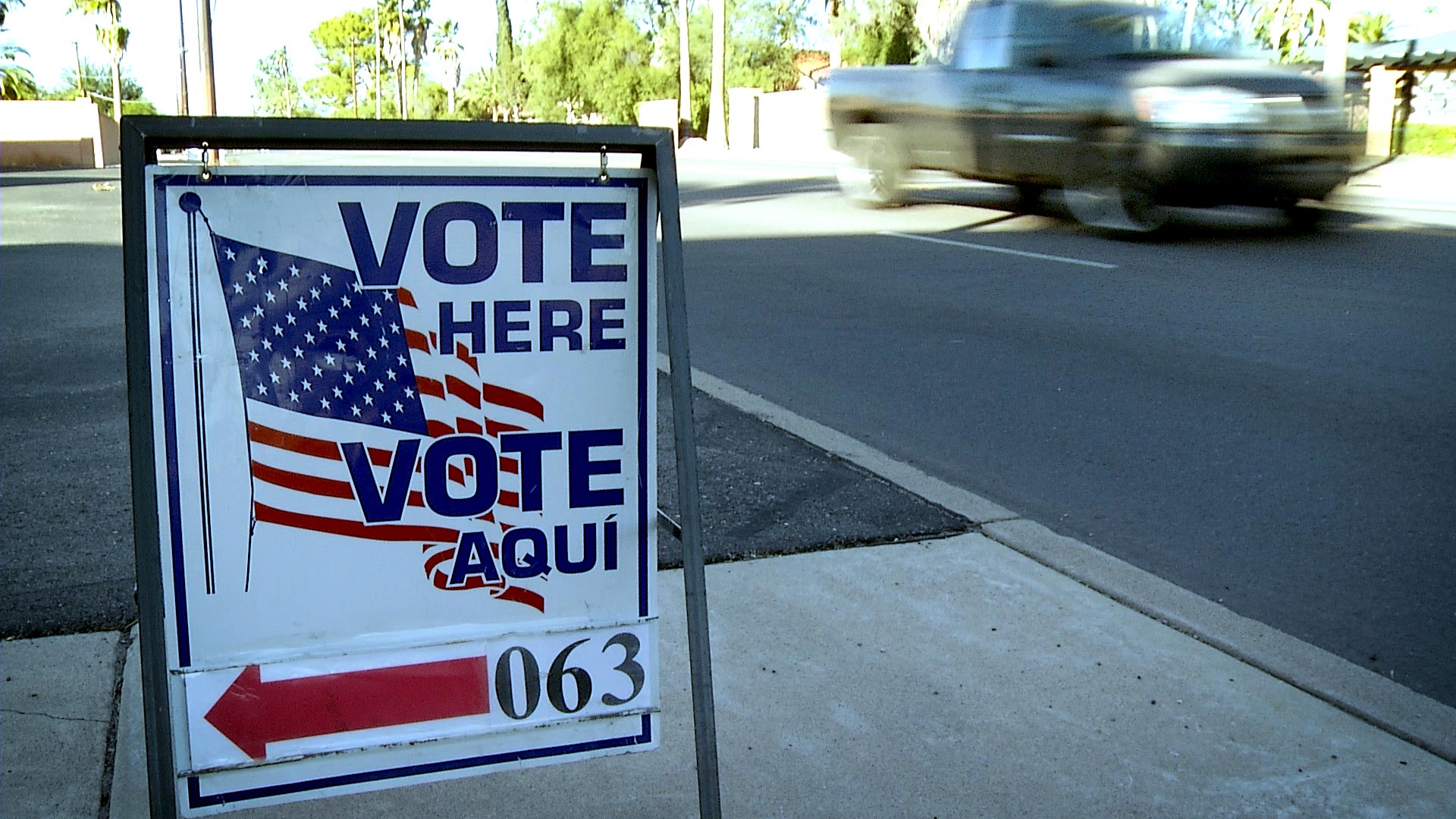 File image of a voting sign outside of a polling place in Tucson.
File image of a voting sign outside of a polling place in Tucson.
Tucson-area school districts are looking to voters once again this election season to approve initiatives that will fund everything from art programs to school safety, including the area's two largest school districts Tucson Unified and Sunnyside.
In Tucson Unified, where 77% of its 41 thousand students qualify for free and reduced lunch — a measure of poverty — the district is asking voters to approve a 480 million dollar bond for basic upgrades to floors, bathrooms, HVAC systems and plumbing, as well as learning spaces such as science and computer labs and upgrades to safety and security, transportation and IT infrastructure.
Governing Board President Ravi Shah says the bond will help ensure the district’s 88 schools can modernize and upgrade.
“Every single one of our TUSD schools would see a benefit,” he said. “A few million dollars each probably to each school, elementary, middle and high school. So every single one of our campuses would have a benefit.”
TUSD and other school districts ask for voter approved funding initiatives because of state budget cuts that date back to 2008.
“We’re not able to maintain our aging facilities based on the funding that we’re getting from the state, based on per pupil enrollment in our schools,” Shah said. “So we’re just able to fix systems when they break, so every single end of July, early August, every school year since I’ve been on the board, I’ve been getting emails from parents and staff about our district, about our HVAC systems that are not working.”
The bonds will be repaid from a property tax levy within the district that will cost the owner of a $100-thousand home about 69 dollars annually for 24 years.
Both TUSD and Sunnyside, where more than 80% of their 14-thousand students qualify for free and reduced lunch, have been unable to pass the bonds and overrides they’ve asked voters to approve in the last six years.
Sunnyside is asking voters to approve an 8-million dollar override for operations costs in safety and security, academic-growth support and arts and athletics, as well as programs that prepare students for workforce and college opportunities and maintaining competitive teacher and support staff pay. None of the funding would go to administrative pay.
The district is also asking for a 7-million dollar or 10% budget override that would modernize aging school buildings and fine arts and athletic facilities; provide classroom technology, curriculum, furniture and equipment; and buy new school buses and service vehicles.
District spokeswoman Marisela Felix says there is a lot riding on these overrides passing, including maintaining robust extracurricular programs.
“So the fine arts and athletics, we want to be able to continue to offer those programs, our music programs that are available for K-12 students,” she said. “Sometimes it’s those things that keep students in school, so it’s really important for us to be able to continue to offer all of those extracurricular activities and those fine arts programs.”
These overrides would be funded through levies on property tax in the district and would cost the average homeowner in the district, with a home valuing just more than 100-thousand dollars about $136 and $118 a year, respectively, for seven years.
Flowing Wells and Sahuarita unified districts are also asking voters to decide on an override for one district and a bond for the other. Voters typically approve funding initiatives in both those districts.

By submitting your comments, you hereby give AZPM the right to post your comments and potentially use them in any other form of media operated by this institution.